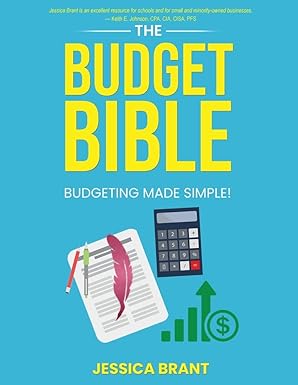Question
In their final year the students Axel F. and Susie Q. established the e-commerce company SuperNova AS and made a business plan for their new
In their final year the students Axel F. and Susie Q. established the e-commerce company SuperNova AS and made a business plan for their new company. According to the plan, the company will sell goods that can be grouped in four main categories:
Purses, jewelry and other accessories
Training equipment
Home electronics
Kitchenware and ornaments
Recently, Axel and Susie have visited exhibitions and trade fairs and have secured a valuable network of Asian manufacturers of goods in the four above categories. They have also found a small warehouse in the Oslo area and have negotiated terms for the Norwegian distribution of the goods.
SuperNova AS was established January 2, 2023, and the company's opening balance looked as follows after Axel and Susie, who owns 50 per cent each, had privately covered the registration costs for the company:
The financial planning is based on information retrieved from the company's business plan:
In January 2023, an investment of kr 500 000 will be made to cover the costs for the company's Internet site. Since the expected economic life of this asset is less than three years, the investment will not be capitalized and depreciated, but taken to cost immediately.
There will be a kr 150 000 deposit for the warehouse rent, to be paid in January 2023.
SuperNova uses a cost-based pricing model, with a mark-up (profit on top of purchase price including freight to Norway) of 80 per cent, before Value Added Tax.
The company has a free 30-day return policy and expects that as much as 20 per cent of the goods will be returned, measured in terms of sales revenue. The returned goods cannot be sold at full prices and will be offered to a discount outlet store for half of the original sticker price, the month after they have been returned to SuperNova.
For the sake of simplification, we assume that the goods arrive in Norway the same month they are ordered and that they are also paid this month.
All the questions shall be solved using a spreadsheet and you should upload your spreadsheet as
your solution, do not convert to PDF. It is not necessary to submit a blank PDF-file, only your
spreadsheet file.
| Bank deposits | 100 000 |
| Total assets | 100 000 |
| Share capital | 100 000 |
| Total equity and debts | 100 000 |
The customers pay with debit/credit cards when the goods are purchased, and they also pay the freight costs in full.
Marketing activities take place on various social media platforms and the company plans in this respect to spend monthly kr 50 000 in Q1 and Q2 and kr 100 000 per month in Q3 and Q4. These costs are paid the same month as they occur.
The other operational costs are expected to be kr 25 000 per month in Q1, kr 30 000 per month in Q2, and kr 35 000 per month for the rest of 2023. These costs are also paid the same month as they occur.
Axel and Susie are uncertain about how much to budget for their own salaries and other personnel costs. The goal is to have a budgeted monthly rate of return on sales of 5 per cent after salaries and other personnel costs. Hence, the budget must be used to determine the level of the monthly salaries and other personnel costs. For the sake of simplicity, we can assume that all of these costs are paid the same month as they occur.
The sales and purchase budgets for 2023 are as follows (all figures ex VAT):
| Purchase of goods in NOK | Sales budget in NOK | |
| January | 250 000 | 0 |
| February | 350 000 | 250 000 |
| March | 400 000 | 450 000 |
| April | 400 000 | 500 000 |
| May | 450 000 | 600 000 |
| June | 450 000 | 600 000 |
| July | 500 000 | 800 000 |
| August | 550 000 | 850 000 |
| September | 550 000 | 850 000 |
| October | 700 000 | 1 000 000 |
| November | 800 000 | 1 100 000 |
| December | 800 000 | 1 200 000 |
| Total 2023 | 6 200 000 | 8 200 000 |
The above figures do not include the returned goods and the revenues from selling them for the second time at a discounted price, ref. point 4 above.
Question 1 d (20 %) Present a monthly cash-flow budget, where you show the need for external funding, both in terms of time as well as the amount needed.
Step by Step Solution
There are 3 Steps involved in it
Step: 1

Get Instant Access to Expert-Tailored Solutions
See step-by-step solutions with expert insights and AI powered tools for academic success
Step: 2

Step: 3

Ace Your Homework with AI
Get the answers you need in no time with our AI-driven, step-by-step assistance
Get Started


